 Petzlover
Petzlover Both Jack Russell Terrier and Tamaskan are originated from United Kingdom. Jack Russell Terrier may grow 33 cm / 12 inches shorter than Tamaskan. Jack Russell Terrier may weigh 37 kg / 81 pounds lesser than Tamaskan. Both Jack Russell Terrier and Tamaskan has almost same life span. Both Jack Russell Terrier and Tamaskan has almost same litter size. Both Jack Russell Terrier and Tamaskan requires Low Maintenance.
Both Jack Russell Terrier and Tamaskan are originated from United Kingdom. Jack Russell Terrier may grow 33 cm / 12 inches shorter than Tamaskan. Jack Russell Terrier may weigh 37 kg / 81 pounds lesser than Tamaskan. Both Jack Russell Terrier and Tamaskan has almost same life span. Both Jack Russell Terrier and Tamaskan has almost same litter size. Both Jack Russell Terrier and Tamaskan requires Low Maintenance.
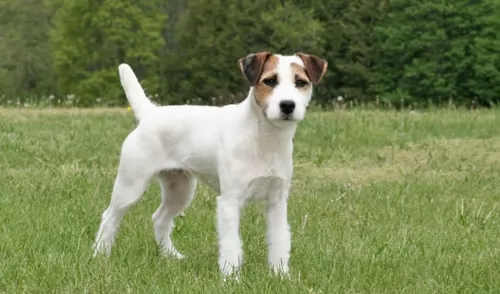 The popular Jack Russell Terrier was developed in Devonshire in the south of England in the late 1800's so as to hunt foxes.
The popular Jack Russell Terrier was developed in Devonshire in the south of England in the late 1800's so as to hunt foxes.
Often believed to be the Parson Russell Terrier, the Jack Russell Terrier was developed by Parson John Russell. This is where the dog gets his breed name from. Some people get the Jack Russell Terrier a little bit mixed up with the Parson Russell terrier, when it fact its actually a different breed, but sharing a common ancestry.
The Jack Russell Terrier is smaller than the Parson and bigger than the Russell Terrier. The breed became known in the U.S. by the 1930s and the Jack Russell Terrier Association of America wanted recognition by the American Kennel Club, which was granted in 2000.
 It is believed that the Tamaskan has been specifically bred to resemble a wolf, and he does too.
It is believed that the Tamaskan has been specifically bred to resemble a wolf, and he does too.
They aren’t recognized by the Federation Cynologique Internationale as they aren’t purebred. In fact they aren’t recognized by any kennel club, being crossbred with other dog breeds such as the German Shepherd, Siberian Husky and Alaskan Malamute.
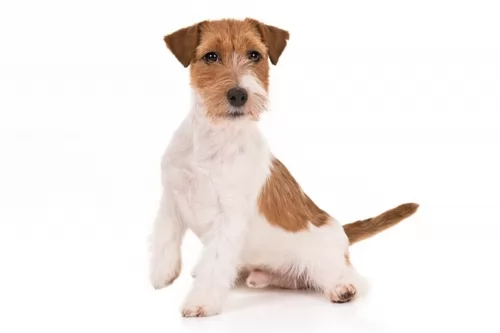 The Jack Russell Terrier is a small dog that weighs between 6 and 8kg and stands at between 25 – 38cm. The body length of the dog should be in proportion to the height.
The Jack Russell Terrier is a small dog that weighs between 6 and 8kg and stands at between 25 – 38cm. The body length of the dog should be in proportion to the height.
He is essentially a white dog with orange or fawn colored patches. The coat is mostly smooth and short, but the coat can also be longer and rough or it can be broken which is a combination of rough and smooth. Regardless of coat type, they are dense, double coats which will require brushing at least twice a week to remove loose hairs. He may also be tri-colored such as being white with black and tan patches.
He has alert, bright dark brown eyes and ears which are somewhat erect and which flop over at the tips. The tail has always been traditionally docked, giving him an attractive, compact look about him but unfortunately the tail is often left long on the dog these days.
Your Jack Russell Terrier is a lively, tenacious, bold, fearless, feisty, cheeky, confident, independent, intelligent and full of life dog. He is super energetic and exuberant, spirited and full of personality.
There are some dog owners who are exhausted by him and would prefer a more quieter dog breed as their companion. Nonetheless he has some excellent characteristics such as being a totally devoted and loving dog.
It is why it is a good idea to have him trained and socialized as it calms him down and makes him more obedient. He is very intelligent and training him will be easy.
 The beautiful Tamaskan dog is large, standing at between 61 and 71cm in height and weighing between 23 and 45 kg.
The beautiful Tamaskan dog is large, standing at between 61 and 71cm in height and weighing between 23 and 45 kg.
It is a mix between several sled dogs – Siberian Husky and Alaskan Malamute. The thick double coat is coarse and can be grey, cream, black or reddish and the tail of the Tamaskan is wolf-like too – thick and bushy.
His ears are erect and alert and he has sharp hearing. His almond shaped eyes can be yellow or brown and they are alert and bright and don’t miss a thing.
The Tamaskan is capable of becoming a good family pet, being gentle with children and accepting of other dogs. His high intelligence makes it that he can learn a lot of simple commands.
Because he has been a pack dog, he doesn’t like to be left alone. He is social and as a pet he will want to be an interactive part of his human family. Leaving him unsupervised for days on end will see him getting up to mischief.
He will die of depression, boredom and loneliness if he is put into the back yard and ignored.
They are certainly not recommended for life in the city but will need to have a large space to run and play.
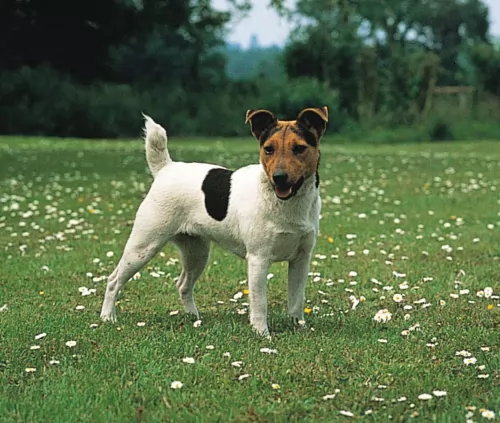 With loads of vibrant personality, the energetic Jack Russell Terrier has got so many wonderful characteristics to his name – devotion, intelligence, charming, lively, playful and he is an entertainer – you’ll always be laughing a him.
With loads of vibrant personality, the energetic Jack Russell Terrier has got so many wonderful characteristics to his name – devotion, intelligence, charming, lively, playful and he is an entertainer – you’ll always be laughing a him.
You do need to pay him attention – you can’t just plonk him in your backyard and forget about him. He wants your love and attention and ignoring him can lead to problem behavior such as obsessive barking.
Give your Jack Russell Terrier all the love and care he needs, and you’ll have an exceptional pet and friend.
 The Tamaskan may look like a wolf but he isn’t aggressive. He’s looks can be to your advantage because intruders think twice before confronting a ‘wolf’.
The Tamaskan may look like a wolf but he isn’t aggressive. He’s looks can be to your advantage because intruders think twice before confronting a ‘wolf’.
Little do they know that this is a loving, loyal dog that makes an excellent playmate for children. They’re social too and want to be with their family a lot of the time.
They’re dogs so devoted to their human family that they can even suffer with separation anxiety.
Give him the love and exercise he craves and you’ll find in him the most awesome canine friend.
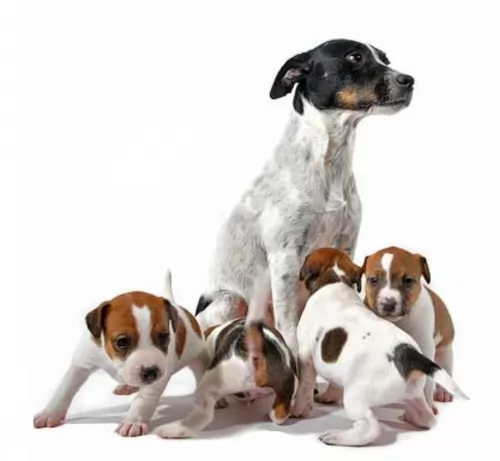 This particular dog breed has a reputation for being healthy and living to a good age such as 16 or 17 years of age. Of course he needs to be given proper care to reach such a good age.
This particular dog breed has a reputation for being healthy and living to a good age such as 16 or 17 years of age. Of course he needs to be given proper care to reach such a good age.
Some common dog disorders you might want to be aware of are -
Lens luxation is actually a common hereditary disorder in these dogs, but even so, with good care, your dog isn’t likely to battle with it. What happens is that the lens in the eye becomes displaced. There are two types, with Posterior luxation being the lesser severe one.Treatment is available.
Patellar luxation is an hereditary disorder affecting the knees of the dog. The kneecap slips off the groove where it sits and you may notice your dog running while holding his hind leg in the air. It can sometimes slip back in place and then you see your dog running in his usual way. It becomes more serious when it affects both legs.
 Your healthy Tamaskan, even though he isn’t prone to common genetic health problems, can get any one of the many dog illnesses there are, although this is highly unlikely.
Your healthy Tamaskan, even though he isn’t prone to common genetic health problems, can get any one of the many dog illnesses there are, although this is highly unlikely.
However without good food, exercise, love and care, he can also be susceptible to parasites, rabies, parvovirus, hip dysplasia, bloat, skin infections and cancer.
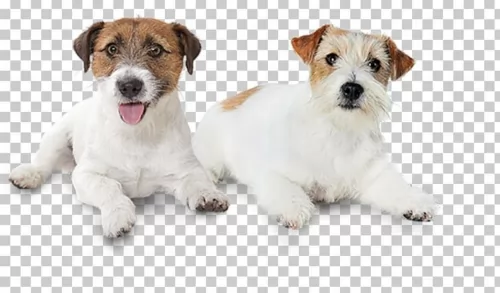 The Jack Russell Terrier isn’t just a small dog that can be left to his own devices. He will need proper training and socialization early in life to make him obedient and better to get on with.
The Jack Russell Terrier isn’t just a small dog that can be left to his own devices. He will need proper training and socialization early in life to make him obedient and better to get on with.
He may be a small dog, but he certainly won’t do in the city where he is cooped up in a place with a handkerchief of a garden. He needs lots of space to run and play. He wants his human family to join in with walks, hikes, ball games and swimming.
You can buy excellent commercially manufactured dog food which caters for energetic small dog breeds like the Jack Russell Terrier.
Once you have selected the best one for your pet, with dry kibble being better in terms of dental health - you can also add in some brown rice, vegetables and cooked chicken. This is highly beneficial to all dog breeds. A little bit of raw meat can sometimes be added in too.
The bottom line is to to prevent your pet from eating foods high in preservatives, additives and fillers. Never leave your pet without a constant supply of fresh, cool water.
 The Tamaskan Dog is very active. He just loves activity - long walks and hikes and lots of running off a leash. He’ll love ball games too – anything that keeps him mentally and physically active.
The Tamaskan Dog is very active. He just loves activity - long walks and hikes and lots of running off a leash. He’ll love ball games too – anything that keeps him mentally and physically active.
Provide your beautiful, active Tamaskan dog with top quality food that is rich in protein. You can give him one of the quality commercially manufactured foods – just check out the ingredients on the packaging and go for the dog foods with wholesome, natural ingredients in them.
Your Tamaskan is part of the family and deserves some home-made food. Nothing spicey and exotic as you’ll sit with stomach problems. Boiled chicken, brown rice or pasta and spinach, sweet potatoes and carrots are a super healthy choice and food like this won’t play havoc with your dog’s digestion.
This food can all be chopped up and small portions added into the dry kibble twice a week.
●This is a fairly low maintenance dog. He does shed so a good brush twice a week will be sufficient for him.
●When you brush him, check him over for unusual lumps. Look inside his eyes and inside his mouth as he can’t tell you about a bad tooth that could be causing him pain. Check inside his ears too for signs of redness. If you don’t want to do these things, at least send him to a professional groomer who will do it all for you.
●Have your pet neutered or spayed if you want to avoid puppies. This can be beneficial for your pet’s health too.